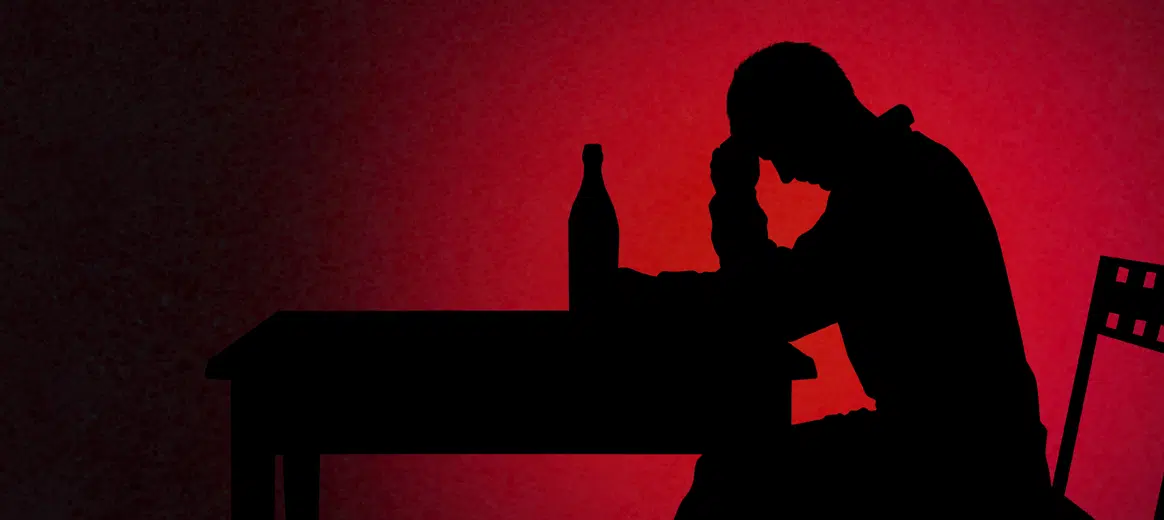He died at 7:08 p.m. Jan. 28, 2017 — my birthday.
I didn’t learn of my brother’s death, however, until the next morning when a barrage of social media posts beat my parents’ efforts to make calls to family and friends. Kevin’s Facebook page had rapidly filled with RIP messages long before I had the chance to receive this news privately.
You aren’t supposed to learn of your little brother’s death on social media any more than you are to discover that he died on your birthday. Processing all of this is still impossible, but perhaps represents just another harsh turn on the rollercoaster our family rode for more than two decades. My baby brother, as amazing as he was, was an alcoholic.
Although he died sober, Kevin transitioned to the next life by himself, his body unexpectedly giving up after slowly deteriorating following years of self-inflicted abuse. My smart, fashion-conscious brother, who grew up in the Diocese of Arlington having been both an altar server and Boy Scout, and who graduated from St. Michael School in Annandale and Bishop O’Connell High School in Arlington along with the rest of our family, died only 17 days before turning 38.
Kevin is one of many Americans who will die this year from alcoholism. A 2015 study by the National Institute on Alcohol Abuse and Alcoholism found that of the 15.1 million adults and 623,000 youths who suffer from alcohol-use disorders, about 88,000 die annually — making it the third leading preventable death in the U.S. Fewer than 10,000 are due to driving fatalities. Instead, the realities of alcohol-related deaths reside somewhere within the dark, skeletal closets of addicts and their families.
As an alcoholic’s sister, I was a witness to tragic events that slowly chipped away at the core of our family’s function. Five months before he died, while he was fighting for sobriety in a long-term rehabilitation program, I decided to send Kevin a letter sharing how his addiction had personally affected me.
That letter documented my private witness of numerous alcohol-induced moments: the driving accident when Kevin was thrown from a car onto the highway and suffered a broken neck; the afternoon my mom, my daughter and I found him violently convulsing on the floor with blood and liquid bubbling from his mouth just before we were to go pumpkin picking; the night my husband, my dad and I drove him three hours to a rehabilitation center where the ER doctor told us that he had never before seen a blood alcohol level so high before admitting Kevin into a detox unit for the next two weeks.
These incidents — which only begin to touch on the totality of the horrors our family lived through — sadly overshadow the love I had for my brother and the joy that an addict can bring to peoples’ lives when they are sober. The Kevin I knew — outside the vodka bottle — was a beautiful, gifted, intelligent and funny creature of comfort.
We grew up in an era when our mom brushed us outside after breakfast and didn’t sweep us back in until dinner time. Kevin, always donning his Alex P. Keaton hairstyle, ran through our Annandale neighborhood wearing a sweatshirt emblazoned with the phrase “One HellUVA School,” an indication that he might one day follow in our sister’s footsteps and attend the University of Virginia.
We played flashlight tag on summer nights, rode skateboards down the hill facing our house, tore through streets on Big Wheels and banana-seat bikes with happy dogs tethered to our handlebars, and fought over who would ride shotgun in our big brother’s Triumph Spitfire. One of my earliest memories of life hails from his baptism where I had the honor of announcing to all, “God has given us a gift from Heaven, and we are to call him Kevin.”
As an adult, Kevin helped move me out West for law school. He made art with my children and playfully scared them with his invisible “pet alligator,” gifted flowers and silly cards to our mom every Mother’s Day, played bass guitar with his band, and mowed my grandparents’ lawn. He was perfect. Almost.
For years, I prayed that Kevin would get better, find the courage to fight this disease and seek a reason to live. One year before he died and frustrated by his seeming inability to remain sober, I changed my prayer from one of recovery to a desperate appeal that Kevin find peace in whatever form that may be. I personally accepted that if peace meant death, perhaps death would be better than what we as a family — and Kevin as an addict — was going through.
I now loathe that I changed my prayer. I question whether such a request was simply a personal relinquishment of hope amidst chaos; a sign of washing my hands in an effort to be “innocent of this man’s blood.” I can only hope that Kevin is at peace, because I am anything but, now that he is gone.
Since his death, I have spent significant energy contemplating how his addiction began. Was there an incident that caused sleeping demons to emerge? Was our family’s genetic predisposition to alcoholism so cancerous that he had no hope once he innocently tasted his first drink? Did I as his sister fail him as a role model?
At his wake, I placed a pair of Kevin’s shoes next to his electric guitar and his charcoal wool pea coat. For most who viewed these items, his shoes were likely a simple sign of memorializing a man who walked not-enough miles on this earth. For me, it was the ultimate challenge to all — before you criticize this man, walk a mile in his shoes.
In the days after he passed, I found my letter to Kevin among his personal items. He had opened it; he had read it. He had seen my final, closing words: “I love you. You are brave. You are worth fighting for. So please, just fight. Fight with all your power to beat this addiction. Fight when you get out of rehab to make every day a sober day. Fight for every one of your family members that love you. Fight for me.
“And while you fight, know that I will keep praying for you, supporting you, and loving you every single day of your life. Your story creates my story. Having an addiction is not just about you. It’s about everybody that surrounds and loves you. So while you fight the biggest fight of your life … please, please fight for us.”
My baby brother is gone. He is one of the 88,000 who will die of an alcohol-related death this year. He was the victim of a preventable disease. He could have been your neighbor, your friend, your altar server at Mass. He was loved. I display his shoes again today for the amazing boy he once was, for the addict who fought for sobriety to the bitter end, for those who will die with him this year, for all in rehab battling sobriety, and for the siblings and families of addicts everywhere. Every one of you is worth the fight.
Schulze, an assistant professor at Clemson University in South Carolina, can be reached at [email protected]



Learn from the risen Lord